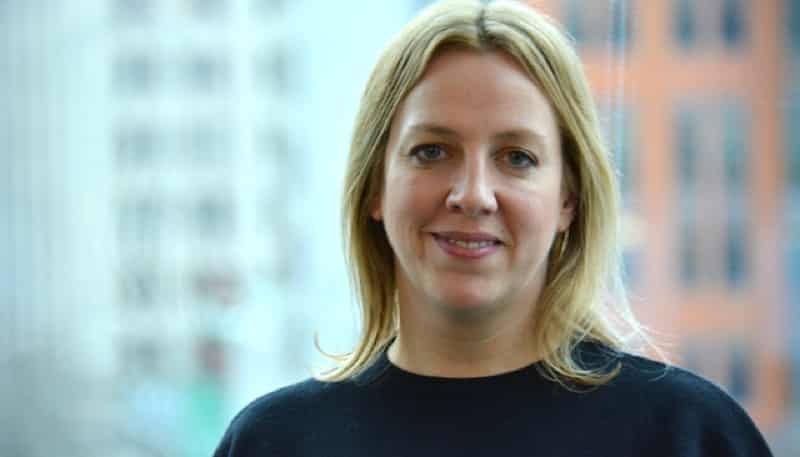The CEO Activist and the Social Impact Brand

So, you’re the CEO of a consumer brand – especially a big consumer brand – and you don’t want to miss out on the social impact bandwagon. You want to be an activist CEO. You want to be on trend.
Big hint: If that’s your motivation, you’ve already missed the bandwagon. At least, that’s one main takeaway from my recent interview with Victoria Baxter, Senior Vice President of the Social Impact Practice at the global PR/communications firm of Weber Shandwick. We met to discuss their recent research report, CEO Activism: Inside Comms and Marketing, and our wide-ranging conversation covered the state of purpose-driven brands, what social impact means now, and what it takes for CEOs to take the high ground. Here are a few key insights uncovered in our talk.
Know how social impact is defined today: Beyond CSR to the UN’s SDG
Consumer Social Responsibility (CSR). Purpose. Sustainability. Social impact. How’s an overworked C-Suiter supposed to keep up with the rapidly spinning turnstile of higher-meaning monikers in the corporate world?
Baxter offers this perspective from her long experience; “We work with purpose-driven brands on social issues – companies ranging from AB InBev to Unilever, and many different corporations across the globe. But we also work with nonprofits, foundations, and some government agencies, including USAID, and the United Nations. For all of them, when we define social impact, we look to standards like the UN’s Sustainable Development Goals, which set out a global agenda for what truly sustainable development would mean. That could mean anything from better access to water, environmental sustainability, management of resources, good education, empowerment of women and girls, good health… it’s a very broad range of issues.” In short, CEOs need to define social impact in terms of meaningful, measurable goals – and the true activist CEOs are starting to do exactly that.
“Speak in” before you speak out
External CEO pronouncements catch the headlines, but the internal reality of meaningful social activism rests not with the CEO but with her employees, who need to be consulted and cultivated early on. We asked Baxter about a CEO’s role in “speaking in.”
First of all, she cautioned against speaking about anything that isn’t relevant to your true corporate purpose and to all of the stakeholders who depend on that and must live it out. She said, “When you are coming out on an issue, make certain it’s one that is authentic to your company and feels aligned with the values you’ve always held. Make sure your own house is in order, and you don’t have products or practices contradicting something your high-road positions espouse.”
She also emphasized the importance of actively listening to employees ahead of speaking out –otherwise, it’s not really listening.
Look to drive impact for your company and your world
All the emerging benefits aside, there is still the tendency to look at CEO activism as, at best, do-gooder-ism, and, at worst, sheer egotism. But, as Baxter pointed out, companies that embrace the new standards of social citizenship and even social free speech are making a bottom-line impact, too. “These organizations aren’t holding themselves back, they’re leaping forward. They outperform the stock market. They have more loyal employees and less turnover. They have governance structures that anticipate challenges and mitigate them before they become an unwanted front-page story.”
Baxter also predicts that the rapid rise of the social impact investor is going to be extremely catalytic in terms of companies incorporating social impact as part of their true core. She said, “I was just reading an article today about Marc Benioff, CEO of Salesforce, and he was looking at the companies they are acquiring. Increasingly, he’s finding himself looking at the culture of the company, their values. Is the organization paying its employees equitably? Is there a culture that is responsive and respectful to all elements of the employee base? Those factors weren’t part of what he was looking for five years ago. So, I think social impact represents the bigger set of issues and worldview that a CEO has to deal with today.”
Are you ready to make a social impact as CEO?
Finally, I asked if seeking the greater good can now actually be the best avenue to business success. This years-long social impact veteran simply smiled and replied, “Yes, it can be. It definitely can.”
Have you read?
# Top 500 Best Universities In The World For 2019 : Medicine And Health Science Degrees. | Life Science Degrees. | Physical Science Degrees. | Psychology Degrees. | Arts and Humanities Degree. | Education Degrees. | Social Sciences Degrees. | Business And Economics Degrees. | Computer Science Degrees. | Engineering And Technology Degrees.
Bring the best of the CEOWORLD magazine's global journalism to audiences in the United States and around the world. - Add CEOWORLD magazine to your Google News feed.
Follow CEOWORLD magazine headlines on: Google News, LinkedIn, Twitter, and Facebook.
Copyright 2025 The CEOWORLD magazine. All rights reserved. This material (and any extract from it) must not be copied, redistributed or placed on any website, without CEOWORLD magazine' prior written consent. For media queries, please contact: info@ceoworld.biz








